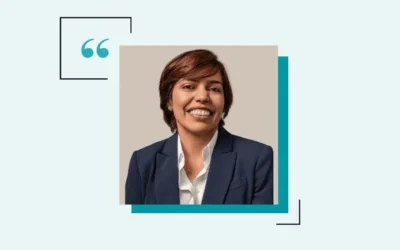Just six months after Sharon Geib joined Woodforest Acceptance Solutions (WAS) as senior vice president of finance, the new spin-off from Woodforest National Bank named her its first CFO.
Geib, a financial services industry veteran who started with the company in its first month, brings more than 35 years of broad leadership experience to the role. Before joining the Texas-based payments platform provider, she was simultaneously president of the mortgage division at Cadence Bank, N.A. and chief operating officer of Cadence Mortgage. Earlier in her career, she rose to the CFO position at both Amegy Mortgage Company and Mitchell Mortgage Company.
Geib’s industry experience includes leading divisions through mergers and acquisitions, developing innovative products to enhance market share and profitability and establishing financial controls and compliance measures.

CFO, Woodforest Acceptance Solutions
- First CFO position: 1990
- Notable previous employers:
- Cadence Bank, N.A.
- Cadence Mortgage
- Amegy Mortgage Company
- Mitchell Mortgage Company
This interview has been edited for brevity and clarity.
SANDRA BECKWITH: What made you the right person to be the first CFO at Woodforest Acceptance Solutions?
SHARON GEIB: WAS had just been spun-off as a new company when I joined in January, so as you can imagine, there were lots of moving parts and a lot going on. I came in as senior vice president of finance to evaluate and organize the finance function.
I tend to do more than I’m asked, so as time went by, it became clear I was the right person for the CFO role when leadership was ready to add it.
You have broad leadership experience beyond the finance function. How does the company plan to leverage that?
GEIB: I’ve been fortunate in my career to have worked for smaller companies. Their size allowed me to participate in more than just preparing financial statements, so I acquired broader experience. For example, early on, I worked closely with my CEO when we were evaluating portfolios, doing acquisitions and building a strategic plan.
It’s that exposure to more than finance that I bring to this role and will allow me to help this newly spun-out company evaluate projects and ways to invest capital, among other things. I know the questions to ask and the obstacles that can stand in the way.
You got your MBA almost 20 years into your career. Why? How did you expect it to help your career?
GEIB: I worked in banking then, when there were a lot of mergers and acquisitions happening. I could tell that we were going to end up either acquiring or being acquired. After working for small companies, I thought an MBA would help me continue my career path in a larger organization.
Was becoming CFO always your career goal? If so, how did it influence how you approached your career? If not, when did you decide to shift to the CFO track?
GEIB: When I was growing up, my grandfather was a pharmacist, and I always thought I would do that, too, until I took biology and quickly realized that was not going to work. I had a high school accounting teacher who got me hooked on accounting, so that’s what I studied in college.
Becoming a CFO wasn’t the goal until about five years into my career when I realized I could do the work. There weren’t a lot of female role models then, but I was fortunate to have a good mentor in my boss, who gave me the opportunity.
Looking back on your career, what do you think was the most pivotal moment … or what “aha” has had a significant impact?
GEIB: Early in my career, I always believed – and still do – that if you work hard and do the right thing, people will notice and you’ll be rewarded for it.
But there was a point when I realized that isn’t always enough, and I had to speak up for myself. When men around me were being promoted and given new opportunities and I wasn’t, I went into my boss’s office and said, “I feel like I’m not being noticed.” He promoted me to CFO. And I learned an important lesson about speaking up for myself.
What advice would you give to others in finance hoping to become CFOs?
GEIB: Don’t view any project or job as too small or different to accept. I’ve seen people say, “I’m not doing that. It’s not my job.” To be a CFO, you need to have a broad base of experience. Participating in as much as you can and learning more about the organization is good for your career.
What part of the CFO’s job is more difficult for you because of your background or experience?
GEIB: I tend to be a somewhat quiet person, so making public presentations and being the face of the organization challenge me.
What’s the easiest?
GEIB: Is there anything easy today? There are things I’m more comfortable with because of my skill set, such as analyzing information and presenting it in a way that people can understand.





